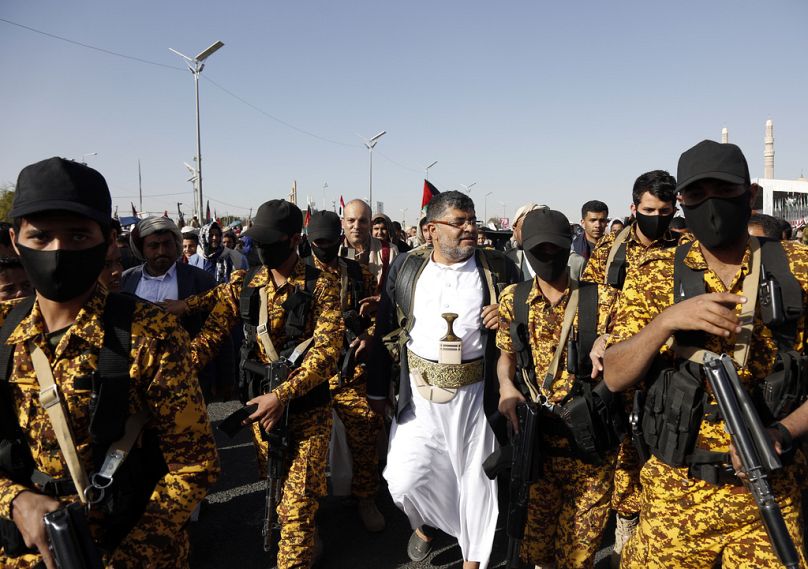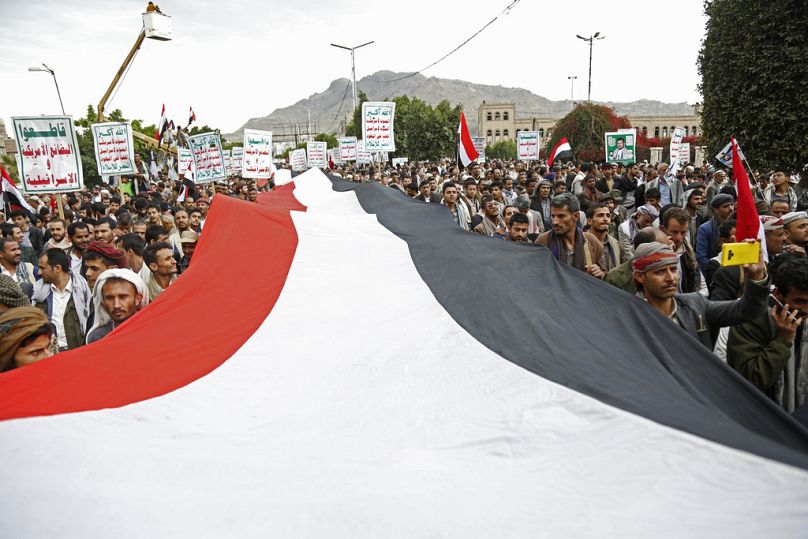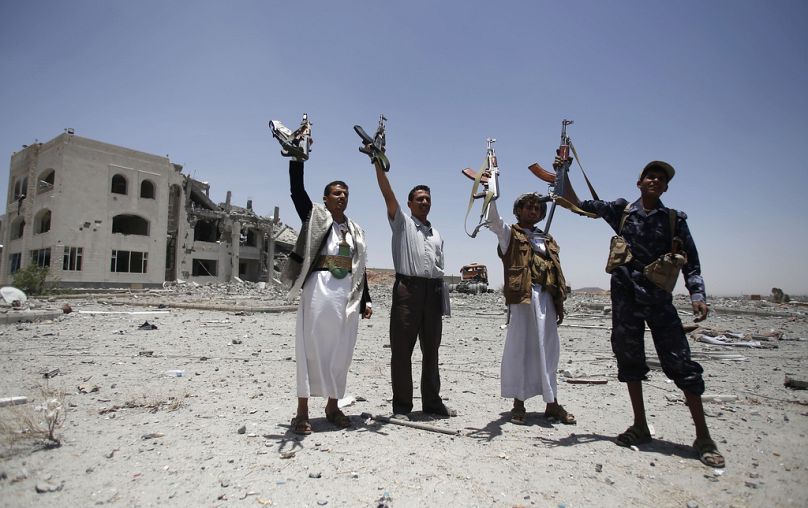The Houthi resistance against a coalition of regional and even far-off powers has only fueled their reputation, transforming them from a marginalised local group to an influential regional actor, Hafed Al-Ghwell writes.
In recent years, the Houthi movement has emerged as yet another prominent non-state actor in the Middle East & North Africa, particularly within Yemen.
 ADVERTISEMENT
ADVERTISEMENT
 ADVERTISEMENT
ADVERTISEMENT
Their actions have far-reaching implications, not only for the regional power balance but also for global trade and security. But for many, the question remains: who are they, and what is their end goal?
The group, formally known as Ansar Allah, is a Zaidi Shia-led religious-political movement that emerged in northern Yemen in the 1990s.
They initially emerged as a theological movement protesting what they perceived as efforts to marginalise the Zaidi sect and the proliferation of foreign influence in Yemen.
However, over the past two decades, they evolved into a significant military force and a major actor in the Yemeni civil war, which has pitted various domestic and regional forces against each other since 2004.
What do the Houthis want?
The primary political objective of the Houthis has remained consistent over time: to gain international recognition of a Houthi-dominated government in Yemen.
Recently, however, their goals now include influencing affairs beyond Yemen’s borders. The Houthis have turned the Red Sea into a theatre for the group's assertiveness.
The strategic importance of a key shipping lane that has two of the world's 14 chokepoints cannot be overstated.
More than 10% of global maritime trade, including about 5 million barrels of oil, transits this corridor every day.
By attacking this artery of global trade, Houthi attacks not only disrupt vital supply chains, they also test the resolve of the international community.
Each attack grants them global notoriety, all while increasing the relative costs of the West's collective reluctance to pressure Israel to abandon its war on Hamas.
How does the rise of the Houthis impact the global conflict landscape?
The rise of the Houthis is indicative of a broader trend of non-state actors gaining prominence in worldwide hotspots by challenging traditional state-centric models of global politics.
Their "successes" serve as a playbook, not just for other non-state groups but even for how state actors can manage proxy elements in extraterritorial contexts.
Non-state actors can assume many, often overlapping forms to pursue goals that are ideological, political, mercenary or territorial in nature — and, when unchecked, partial or total state capture as seen in Libya.
In recent years, the proliferation of these non-state armed groups has accelerated the deterioration of state legitimacy and institutional capacities across a convulsing global conflict landscape. Containing or counteracting such groups is challenging, especially in contexts where they "dig in".
To date, nearly 200 million people around the world live in areas controlled to varying degrees by armed non-state actors, most of which are in Africa and parts of the Middle East.
The non-state actor domino effect
As non-state actors, the Houthis exert a level of influence that is difficult to ignore, having become a significant destabilising force near a major global trade artery, and an unstable Horn of Africa.
As part of Iran's Axis of Resistance, the group is now capable of conducting more sophisticated and unusually aggressive tactics, elevating concerns about further regional instability.
The Houthi resistance against a coalition of regional and even far-off powers has only fueled their reputation, transforming them from a marginalised local group to an influential regional actor.
To similar groups, it demonstrates that it is possible to resist and survive an onslaught from a coalition of more powerful states.
The effective use of asymmetric warfare tactics also provides a roadmap for other non-state actors to achieve their ambitions in some of the world's ungoverned spaces.
This dynamic matters not only because it changes power structures and conflict dynamics within the region, but because it carries significant implications for global security as well.
What is the road ahead?
Houthi escalations in the Red Sea are the new reality of the 21st-century conflict — a world where unaccountable, unassailable non-state actors wield lethal influence in pursuit of narrow goals at the expense of all else.
Absent a holistic resolution of the region’s intractable conflicts, Houthi attacks in the Red Sea will likely result in profound shocks that will disproportionately impact developing countries.
The world needs to be careful in how it understands as well as interacts with the proliferation of non-state actors in the Middle East and North Africa by adopting strategies that go beyond kinetic military action.
These could include credible negotiations, addressing the conflicts in the region — especially the Palestinian issue — generous support for impoverished countries ahead of key socio-economic reforms, and other complementary efforts targeting the root causes for the emergence of groups like the Houthis.
Hafed Al-Ghwell is a Senior Fellow and executive director of the North Africa Initiative at the SAIS Foreign Policy Institute, John Hopkins University.
At Euronews, we believe all views matter. Contact us at view@euronews.com to send pitches or submissions and be part of the conversation.













